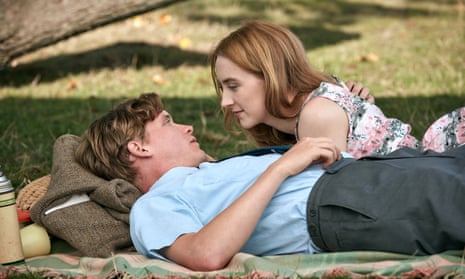Ian McEwan has spoken about online pornography “warping” the sexual expectations of young people. How, while his novella On Chesil Beach was about newlyweds who were unable to cope with sexual reality in the early 60s, things haven’t got much better for the younger generation. Fair point. Before, British youth didn’t have much of a “sexual education”; now it’s mainly via online pornography. Does this count as an education?; does it even count as sexual?
Just as porn is nothing new, nor is the inclination for young people to want to look at it. When I was at school, in yon olden days, there would be boys talking about their magazine stashes – although they were considered daring. Indeed, young males of the past had to work hard to get hold of porn and even then it would usually be routine top-shelf fare.
Now, hard-core porn is a mere casually inquisitive click away. One recent study said that some had become so turned off by the saturation that one in eight millennials was still a virgin by 26. However, in another study from Ireland, 20% of those surveyed said that they turned to porn for information about sex. Is this part of the ongoing warping – this idea of porn as a “useful” sex manual? (“That’s what bodies look like”; “That’s what passion looks like.”) Talk about a distortion masquerading as an education. But how could a young, inexperienced brain be expected to tell the difference? What an adult can cope with, the young brain just isn’t ready for.
In this way, while porn is, on myriad levels, an obvious feminist concern, it becomes about young male users too. What chance do any young people have to find their bearings in a world that bombards them with extreme sex – the images as lurid (and addictive) as any fast food menu that seeks to pummel the retina into consumer-submission. With escalations in recent years (themes, brutality, accessibility), it’s no longer just about porn, but also about Fast Porn. Junk Porn. Super-size Porn. Even “Meh, whatever!” Porn. Material that’s so accessible it feels harmless, normal… In any other era, it would have been judged anything but.
If we’re dealing with porn-warp, there should be an attempt to look at it honestly, not least by accepting that, when it comes to minors, parental controls are proving to be about as much use as a broken umbrella in a force 10 gale. Also, to challenge one of the big normalising lies of porn, one that young people mustn’t be fooled by: that it educates and informs; that it represents the reality of sex, away from soppy idealised hearts and flowers. In truth, porn only represents porn. Hence, you can’t learn about sex from porn – you can only learn about porn from porn. In its own very different way, porn is as lacking in “sexual reality” as are McEwan’s naive newlyweds on Chesil Beach.

